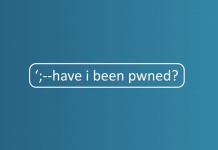

Between Freddie and Fannie’s latest woes and the United States Postal Service teetering on collapse, it’s been a bad week or so for quasi-governmental agencies.
Late last week the United States Postal Service (USPS) announced that it was facing a shortfall of approximately $5.5 billion in terms of its obligations in the month of September, and that without Congressional action it might have to cease operations entirely during the winter of 2011. In a week that was also marked by hurricanes, earthquakes and gigantic wildfires, how could one miss the irony that while neither snow nor rain nor heat nor gloom of night can stay these couriers from the swift completion of their appointed rounds, a lack of cash certainly can?
Before 1970, the post office was an agency of the United States government, like any other, providing an important and truly national service, while losing a whole bunch of money doing so. It was bleeding then, and hemorrhaging today, because the USPS—though now “quasi-governmental”—is still required to fulfill the established policy of the United States to ensure frequent and efficient mail service at a very low cost to the consumer. In theory, the post office is supposed to be revenue neutral, i.e., neither losing nor making money. It provides service and pays for itself through the sale of stamps and other like products and services.
Ah well. Man plans, God laughs.
Given the dramatic decline in the utilization of conventional postal services—thanks to email, UPS and FedEx, not to mention the new world of social networking—there really is no way for the USPS to break even without radically reinventing itself and ending certain services like Saturday delivery, closing many post offices and raising the price of a first-class stamp to a dollar or so.
In the face of freewheeling competition, huge labor costs and truly astounding pension liabilities any non-quasi-governmental organization (i.e., a real business) would do whatever it had to do to survive. Unfortunately, the USPS can’t curtail services without Congressional approval (universal peace might be easier to achieve these days), and it can’t make use of bankruptcy provisions, because it is “quasi-governmental.” So one way or another the USPS must rely on yet another “bailout,” probably in the form of a large injection of cash from Washington.
It sounds so 2008, doesn’t it?
What happened to Freddie and Fannie last week further illustrates that (among many other things) quasi-governmental organizations just don’t work. On Friday, the federal government, in the form of The Federal Housing Finance Agency, sued 17 large banks claiming that the defendants sold $200 billion worth of fraudulently overpriced mortgages to Fannie Mae and Freddie Mac. Paradoxically, many of the defendants who are suffering the wrath of these suits were also beneficiaries of the largesse of the bank bailouts just a few years ago. Apparently, the left hand of the government hasn’t seen its right hand for some time.
Fannie Mae and Freddie Mac started out as government agencies. Even after their status changed in the late ’60s, their stated purpose was to fulfill the long-established policy of the United States to promote individual homeownership by making mortgage money freely available. Essentially, the basis of the suits against the banks is that the registration statements by which the mortgages were sold to Fannie and Freddie did not fully and adequately disclose material facts. In fact, the allegations would indicate that the government believes not merely that the disclosure was inadequate, but also that it was deliberately false and misleading.
The banks’ defense is likely to be that Fannie and Freddie were intimately involved in the creation of these securities, their policy was to make as much mortgage money available as possible, and since they are perhaps the largest and most experienced institutions involved in the United States mortgage business, they knew, or should have known, the risks as well as any investor.
The U.S. government is not alone in seeking redress from the banks over those ridiculously overpriced mortgages. There has been a barrage of suits against most, if not all, of the 17 defendants named by the U.S. government, including one filed by AIG, the insurer of many of the mortgages originated and/or packaged by the banks. It can be argued that AIG, at least by dint of ownership, is also quasi-governmental ever since the Fed engineered its massive bailout in 2008. It’s sure getting harder to distinguish among the players without a scorecard these days.
The government has been negotiating with these banks for a while and, in fact, filed a suit very similar to those announced last week against UBS some months ago. As a practical matter, this dance has been going on for so long the statute of limitations for the type of securities violations alleged in these suits would have expired in just a few days. The government was out of time—it had to sue now or forever hold its peace.
Unfortunately, these suits have the effect of slowing down and further compromising the pace of bank lending, which was precisely what the bailout was supposed to fix. And besides that, what is the logic of saving banks and then suing them?
The answer is that slowly, and probably unintentionally, as the government got ever larger, it also became schizophrenic. It has lost sight of the role of government in a capitalistic democracy. It can’t figure out if it’s a friend or foe to big business. The plethora of quasi-governmental agencies that became in vogue in the ’60s and ’70s are a good example of this phenomenon—they are neither fish nor fowl. They just don’t work. Hence it was a bad week for Freddie and Fannie, as well as the USPS, because the suits portray them as hapless victims… one can perhaps argue the victim part, but not the hapless part.
I don’t know if Saturday deliveries should be stopped, or who defrauded whom as between the banks and Fannie and Freddie. But I do know that what is called for in the 21st-century is a very bright line between the public sector and the private sector, with most of life being on the private side of that line.
This article originally appeared on Credit.com.









